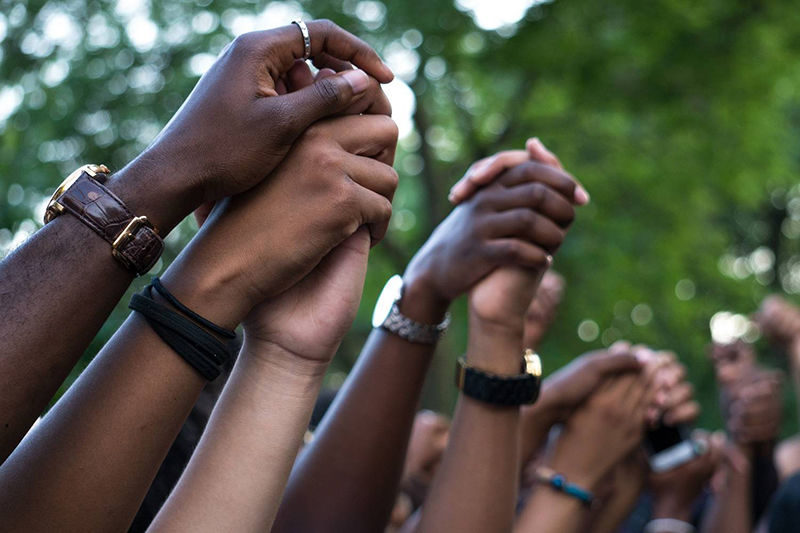Honoring the courage of domestic violence and sexual assault survivors, advocates, and allies on VAWA’s 20th anniversary
On Tuesday, September 9, I attended a celebration at the National Archives in Washington, DC hosted by Vice President Joe Biden to commemorate the 20th anniversary of the Violence Against Women Act (VAWA). It brought together advocates from across the country who are dedicated to helping domestic violence and sexual assault victims, survivors, and their children.
Beginning in the 1970s and continuing on through the 1980s and early 1990s, advocates worked tirelessly to persuade lawmakers and the public to recognize the plight of domestic violence and sexual assault victims and their children. It was through their efforts—and the courageous victims who told personal stories of pain and trauma—that VAWA was realized.
The cultural and political barriers that stood in the way of VAWA’s enactment were considerable. There existed—and continues to exist, though far less prominently—misguided attitudes that led certain men to believe they could exert control over women through physical, sexual, mental, and economic abuse. And there existed an ignorance and lack of understanding that caused victims of abuse to be met with silence from family, friends, and their community. The Vice President spoke of the perception in many communities that domestic violence, as well as rape and sexual assault by an acquaintance, prior to VAWA was not viewed as a crime but a “dirty little secret” or “private family matter.”
The White House’s recent report, 1 is 2 Many: Twenty Years Fighting Violence Against Women and Girls, contains a timeline of the history and success of VAWA. For the first time, law enforcement, judges, and prosecutors received training on the realities of domestic and sexual violence; the National Domestic Violence Hotline was created; funding was established for the training and hiring of forensic nurses to collect evidence from victims and perpetrators and provide expert testimony in court; and a wide range of other civil, legal, and law enforcement resources aimed at the prevention and intervention of domestic violence and sexual assault.
In addition, the DOJ’s Office on Violence Against Women (OVW) was created to support communities serving victims through the provision of funding, technical assistance, policy formation and program development. Under VAWA, women have been provided resources and guidance to better address domestic violence, dating violence, sexual assault, and stalking. VAWA has subsequently been updated to include underserved communities (i.e., rural, tribal, and communities of color) and victims with disabilities. The most recent reauthorization of VAWA in 2013 added protections for immigrant survivors and the LGBT community.
VAWA has also had a tremendous impact on our work at Vera. OVW support has been essential to our Center on Victimization and Safety’s efforts in the areas of supervised visitation and addressing domestic and sexual violence against people with disabilities and Deaf individuals.
VAWA’s importance has become even more visible in the wake of recent high-profile domestic violence incidents involving pro football players Ray Rice and Adrian Peterson. As a result of ongoing national media coverage, Google searches for the phrase “domestic violence hotline” were higher last week than in any other week this year, and phone calls to the National Domestic Violence Hotline jumped 84 percent in the two days after video of Rice assaulting his fiancée was released. It is apparent that VAWA, while established 20 years ago, still remains today a critical piece of legislation that helps to keep victims safe.
For more information about the legacy of VAWA, visit Justice in Focus: Crime Bill @ 20, which engages key voices in a dialogue that looks back at the impact of the Crime Bill—which VAWA was part of—and raises questions about what kind of policy we need for the next 20 years.
Johnny Rice II, Former Senior Program Associate, VERA Institute of Justice Center on Victimization and Safety. Article originally published by Vera on September 19, 2014.

